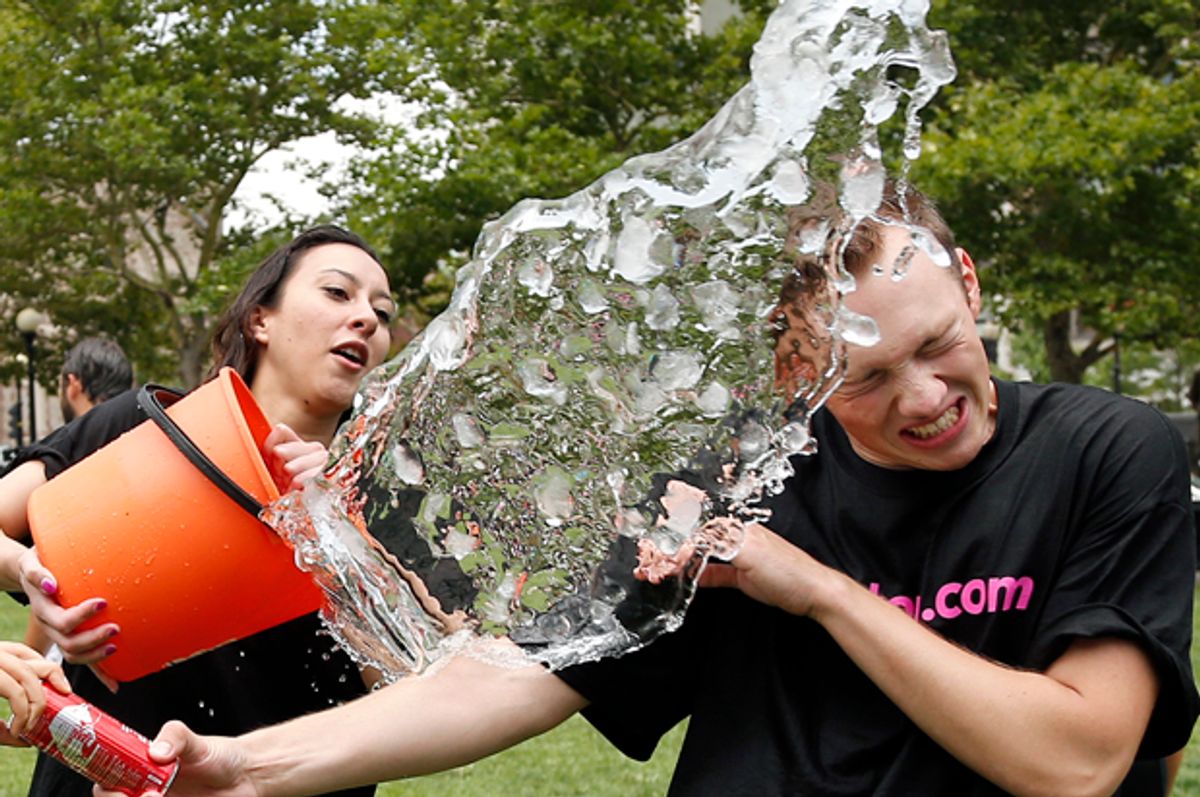The Cincinnati Archdiocese asked Catholic schools to refrain from donating to the ALS Association, due to the possibility that the funds will be used to support embryonic stem cell research, the Washington Post is reporting.
This summer the ALS Association has raised over $30 million, and counting, in conjunction with the viral "ALS Ice Bucket Challenge." Catholic schools, are still permitted to participate -- and film themselves dumping ice-cold water on their heads -- and to donate. They just must donate to "morally" acceptable charities, like the John Paul II Medical Research Institute in Iowa.
“We appreciate the compassion that has caused so many people to engage in this,” the Archdiocese's spokesman Dan Andriacco told the Cincinnati Enquirer. “But it’s a well-established moral principle that a good end is not enough. The means to that ends must be morally licit.”
So what is so potentially "morally" illicit about donating? The Catholic Church fears that they money will go to embryonic stem cell research. With embryonic stem cell research, as opposed to adult stem cell research, the stem cells must be taken from, you guessed it a four to five day old embryo. The destruction of the embryo, to the Catholic Church, is tantamount to abortion.
The Washington Post reports that a 2008 directive from the vatican states: "the use of embryonic stem cells or differentiated cells derived from them – even when these are provided by other researchers through the destruction of embryos or when such cells are commercially available – presents serious problems from the standpoint of cooperation in evil and scandal."
Proponents of embryonic stem cell research tout their potential for treating disease -- and potentially ALS. Also, according to the California Institute for Regenerative Medicine, "All the human embryonic stem cell lines currently in use come from four to five day old embryos left over from in vitro fertilization (IVF)." (More questions about embryonic stem cells, and ethics can be answered here.)
Regardless of religious objections to embryonic stem cell research, folks can still donate to the ALS Association. A spokesperson from ALS Association explained to the Washington Post that people can specify if they want their donations to go to stem cell research, or not. And thus far, the group has received millions.

Shares